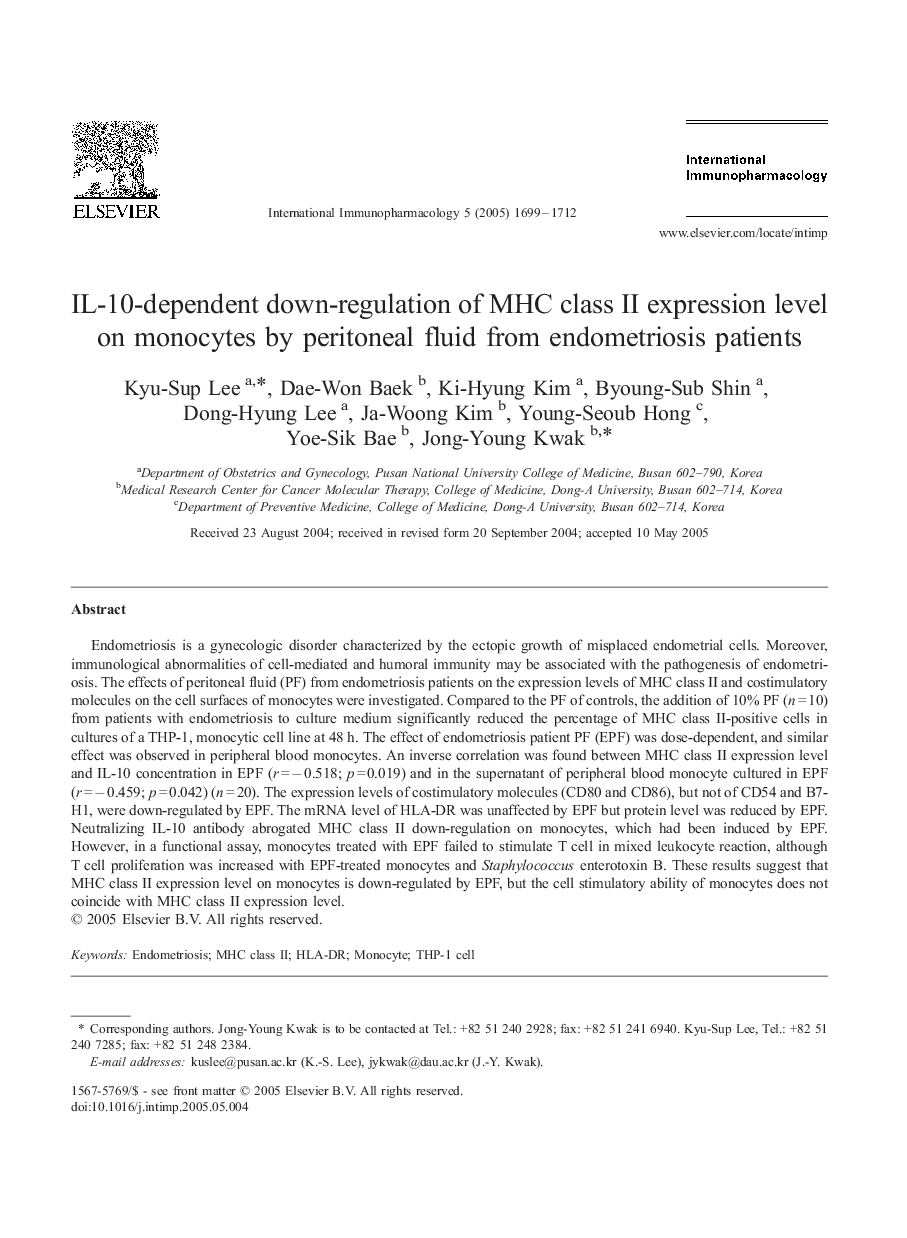| Article ID | Journal | Published Year | Pages | File Type |
|---|---|---|---|---|
| 9007952 | International Immunopharmacology | 2005 | 14 Pages |
Abstract
Endometriosis is a gynecologic disorder characterized by the ectopic growth of misplaced endometrial cells. Moreover, immunological abnormalities of cell-mediated and humoral immunity may be associated with the pathogenesis of endometriosis. The effects of peritoneal fluid (PF) from endometriosis patients on the expression levels of MHC class II and costimulatory molecules on the cell surfaces of monocytes were investigated. Compared to the PF of controls, the addition of 10% PF (n = 10) from patients with endometriosis to culture medium significantly reduced the percentage of MHC class II-positive cells in cultures of a THP-1, monocytic cell line at 48 h. The effect of endometriosis patient PF (EPF) was dose-dependent, and similar effect was observed in peripheral blood monocytes. An inverse correlation was found between MHC class II expression level and IL-10 concentration in EPF (r = â 0.518; p = 0.019) and in the supernatant of peripheral blood monocyte cultured in EPF (r = â 0.459; p = 0.042) (n = 20). The expression levels of costimulatory molecules (CD80 and CD86), but not of CD54 and B7-H1, were down-regulated by EPF. The mRNA level of HLA-DR was unaffected by EPF but protein level was reduced by EPF. Neutralizing IL-10 antibody abrogated MHC class II down-regulation on monocytes, which had been induced by EPF. However, in a functional assay, monocytes treated with EPF failed to stimulate T cell in mixed leukocyte reaction, although T cell proliferation was increased with EPF-treated monocytes and Staphylococcus enterotoxin B. These results suggest that MHC class II expression level on monocytes is down-regulated by EPF, but the cell stimulatory ability of monocytes does not coincide with MHC class II expression level.
Related Topics
Life Sciences
Immunology and Microbiology
Immunology
Authors
Kyu-Sup Lee, Dae-Won Baek, Ki-Hyung Kim, Byoung-Sub Shin, Dong-Hyung Lee, Ja-Woong Kim, Young-Seoub Hong, Yoe-Sik Bae, Jong-Young Kwak,
